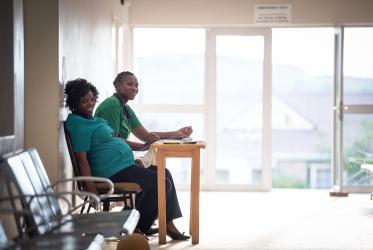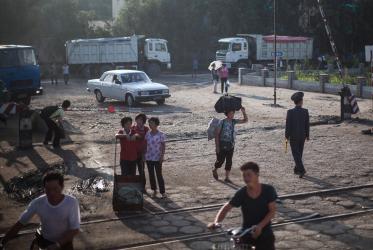Affichage de 1 - 20 de 165
01 Février 2024
Pandemic and pedagogy: what are the valuable lessons?
21 Décembre 2022
WCC offers health and healing workshop at All Africa Youth Congress
07 Novembre 2022
Unity is key when health crisis poses new challenges in Asia
28 Février 2022









